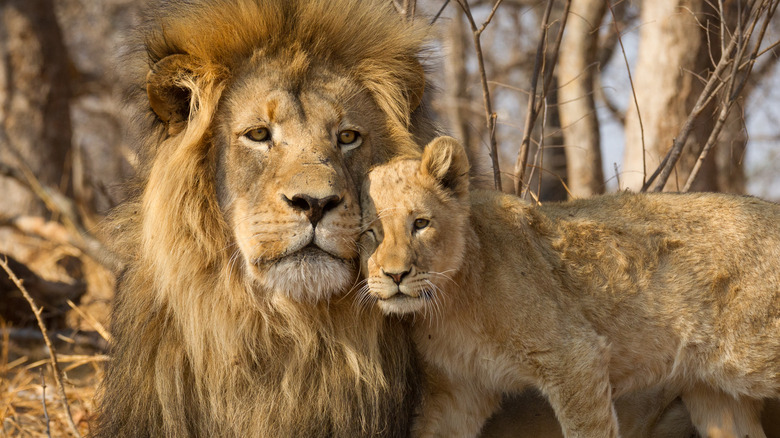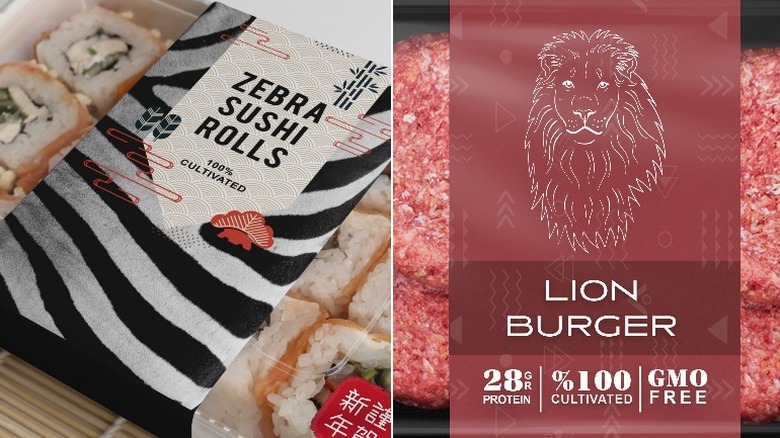Primeval Foods Is Asking If You Would Eat Lion Meat
A new cultivated meat producer is making a meal fit for a king out of the king of the jungle. Eater says that Primeval Foods plans to tap into our inner caveman by bringing engineered exotic meats like zebra, lion, giraffe, and tiger to a menu near you. Safari not included.
Who asked for this? Yilmaz Bora, the vegan owner of Primeval Foods, says that he created his cultivated meat startup for carnivores whose appetites are ignited by a "primal instinct" to eat meat. While The Guardian says that selling and eating farmed lion meat in the U.S. is legal, many restaurants featuring exotic menu items have experienced harsh blowback from some but intense curiosity from others.
Diners who plan to keep their diet carnivorous make up the demographic that Bora wants to reach. He thinks that even though Primeval's meats are created in a lab, they will be more appealing to hard-core carnivores in comparison to plant-based proteins because they are real meat. Not a mushroom or nut in sight.
Responses varied when the question of eating lion meat was put to Twitter. Most respondents answered with a simple and resounding "no thanks," but a few said they were curious about the flavor of cultivated meat and interested in what it could do for the environment. Aside from some quality lion puns, asking if people would eat exotic meats raised more questions about how it's made and whether or not it's good for the environment.
How is cultivated meat made and is it sustainable?
Per a systematic review published in the peer-reviewed International Journal of Environmental Research and Public Health, consumers are becoming more aware of the impact of increasing meat consumption on our environment. Yilmaz Bora, the owner of New York-based Primeval Foods, told Eater that one of the main reasons he started making exotic meats in a lab was to combat the climate crisis.
Many people want to help our environment by eating meat alternatives but are wary of a lab-created animal protein. Primeval Foods ensures potential diners that the exotic meats they're creating are real meat made from animal DNA. As Bora explains, the molecular structure used to create lion meat was sourced from an animal sanctuary in Ankara, Turkey, and the DNA used for zebra meat came from an exotic meat market. After sourcing the DNA, the structure is cultivated in the lab, and the end product is real meat (via Eater).
Despite concerns that cultivated exotic meat might increase carnivores' appetite for the real deal, Primeval Foods relies on information from independent studies suggesting that cultivated meat could notably reduce greenhouse gas emissions, water consumption, and land consumed by livestock.
In the end, the popularity of cultivated meat comes down to flavor. Vegconomist says that after acquiring regulatory approvals, Primeval Foods will be featuring its exotic meats at high-end restaurants before going mainstream at the local supermarket.

